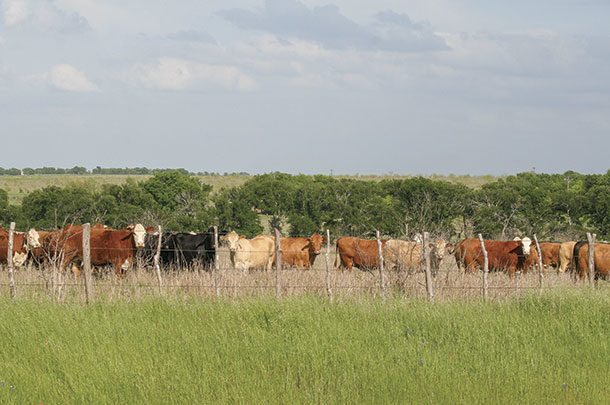Even with all these miles of fences, there are an unfortunate number of misconceptions and faulty speculations about fence laws. Because of this, disputes can and occasionally do arise between landowners.
One of the common issues that arises between neighboring landowners is whether there is an obligation or responsibility to share the costs associated with building and maintaining boundary line fences. In Texas, landowners have no legal obligation to share the costs of maintaining a fence built by a neighboring landowner along the property’s boundary line unless the landowner made an agreement with their neighbor to do so.
When considering whether a landowner owed a duty to their neighbor to maintain a fence that divided their properties, because the landowner enjoyed the benefits of this fence, the Texas Supreme Court explained that when one landowner encloses their land by putting up a fence along their property line, the neighboring landowner may utilize the advantages of this fence to enclose their own land without incurring any liability related to using their neighbor’s fence. Said another way: A landowner does not become legally obligated to share in the costs of maintaining their neighbor’s fence just because this fence is beneficial to and utilized by the landowner.
Texas courts have also found when a boundary fence between neighbors is destroyed by natural causes and rebuilt by one landowner, the neighboring landowner is not obligated to share in the costs of reconstructing this fence. This means if a landowner repairs a boundary line fence destroyed by natural causes, they cannot require their neighbor to reimburse the costs of repairing the fence.
Something landowners in Texas should be aware of is: If a neighboring landowner does not share in the costs of erecting a fence that sits along the property’s boundary line, then the fence will be considered the exclusive property of the landowner who built it. A fence will also be the exclusive property of a landowner if the landowner chooses to build the fence on their property instead of building along the property’s boundary line. So if landowners would like a fence to be their exclusive property, they can either pay for the total cost of building the fence or choose to build the fence on their property, as opposed to building along the property line.
Neighboring landowners can agree to each maintain certain portions of the fence that divides their properties, and these agreements are legally binding and can be enforced by courts. While these agreements are not common, they are very useful and helpful because they establish what rights and obligations neighboring landowners have regarding the fences along their properties’ lines before any issues arise.
This allows landowners to build and repair their designated sections of the fence, and it prevents disputes arising about who should pay the costs of building and repairing a fence and about which landowner can claim the fence as their exclusive property. When neighboring landowners reach an agreement about these matters, the agreement should be written down and signed, and a copy given to both landowners.
When it comes to maintaining good fences and good neighbors, there are a few things helpful for landowners to routinely do.
- They should inspect and repair their fences, especially fences located on their property and not on a property line because those fences are the landowners’ exclusive property.
- Landowners should check their livestock and be sure their livestock have not escaped onto neighboring properties or state or U.S. highways.
- Landowners should also get to know their neighbors and share their contact information with their neighbors and county officials, in order to keep open lines of communication.
While the laws about fences may vary from Texas in other states, it is important for landowners in every state to know what their legal rights and obligations are related to fences around their properties. A simple call to your local county agent, extension service of local lawyer is the best place to start. Knowing these legal rights and duties will help landowners keep good fences and make good neighbors. ![]()
PHOTO: Cattle owners should regularly inspect their cattle and fences to make sure all is as it should be. Staff photo.
Chandler Schmitz is a third-year law student at Texas A&M University School of Law.
References omitted but are available upon request. Click here to email an editor.

-
Jim D. Bradbury
- Owning Partner
- James D. Bradbury PLLC
- Email Jim D. Bradbury








